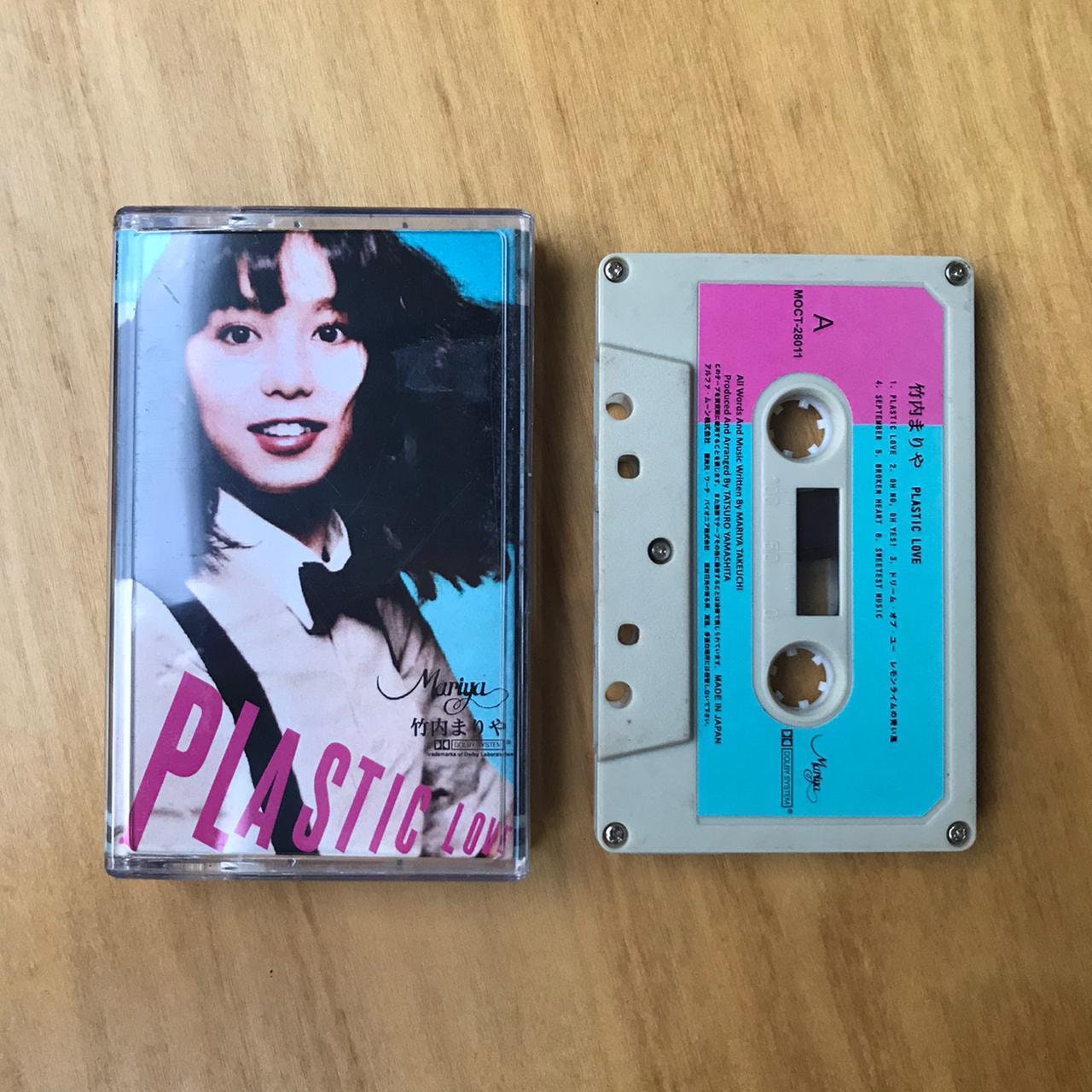


And yet, given city pop’s prevalence in the vaporwave and future funk genres, it feels surprisingly contemporary, and maybe even a wee bit futuristic.Īnd so I recently found myself going down a “Plastic Love”-inspired rabbit hole on YouTube. And I’m no different every time I listen to the song, I feel like I’m opening a time capsule into another era. (The song ends with the following refrain, sung in English: “I’m just playing games/I know that’s plastic love/Dance to the plastic beat/Another morning comes.”)ĭespite being 35 years old, the song has taken on a life of its own in recent years, with adoring fans gushing about the song and the nostalgic urban fantasies that it inspires in YouTube comment sections. Originally released on Takeuchi’s 1984 album, Variety, “Plastic Love” feels like the platonic ideal of city pop thanks to its breezy horn and string arrangements, some tasteful guitar licks, and funky rhythms - and all of it wrapped up in production that’s been polished to within an inch of its life.Īnd then, of course, there’s Takeuchi’s lovely voice, which walks a fine line between coy, plaintive, and heartbroken, which makes sense given that “Plastic Love” is about a woman coping with heartache by indulging in shallow, empty behavior. There’s a lot of great music to be found in the genre - a YouTube search for “city pop” will return any number of mixes - but for my money, one of the definitive city pop songs is Mariya Takeuchi’s “Plastic Love.” Those familiar with the song are probably also familiar with the bits of Engrish found throughout, including the outro which is entirely in Engrish.About this time last year, I discovered “ city pop,” an ultra-slick and highly polished form of pop music that emerged from Japan in the early ’80s, and served as a celebration of the upscale, urban living brought on by the country’s economic success. Seeing as it wasn’t one of Takeuchi’s most popular songs, to begin with, an interesting side-effect of this boom to popularity is that while the rest of the world is learning of the song for the first time, it essentially gets a second chance to be rediscovered in Japan as well, which is, perhaps, the unintentional meta-game of Vaporwave and Future Funk. Years later, we have grown up as consumers of Youtube and memes as a part of daily life, and when we hear an unlikely jam, we take it at face value.Ĭould it have been another song that was propelled to new popularity? Sure. A recent resurgence of the city pop genre which includes soft Japanese funk and rock has seen the song return to prominence. The song has been covered many times in recent years (including by HololiveEN’s Gawr Gura ). With musical memes in the past like Rick Astley’s Never Gonna Give You Up, we were essentially “tricked” into clicking links with feigned disdain for having clicked on the link, however, it was the idea that we were tricked that actually brought about the grievance in this case many of us eventually came to the conclusion that Never Gonna Give You Up is actually a decent song.Ĭonsider that Rickrolling was merely the masses getting their first taste of the conveniences of streamable music, though in a rather quirky way. The hit song Plastic Love from Mariya Takeuchi debuted on her hit album Variety in 1984. The accessibility and convenience of Youtube make spreading a song like Plastic Love as easy as posting a link to a video. Memes tend to spread like a brushfire in windy conditions. Of course, there is also the fact that Vaporwave as a genre is seen as and feeds off of being a meme. The only difference is that with the emergence of City Pop due to in part Vaporwave culture, as well as Japanese culture as a whole, becoming more popular worldwide, the popularity of Mariya Takeuchi and Plastic Love has reached new audiences. Well, Mariya Takeuchi has always been an extremely popular artist – that is, in Japan. How did Plastic Love Become so Popular in recent years? This has been proved with numerous songs, but the one that truly sticks out for most right now is Plastic Love.

However, an unexpected byproduct of the production of such music is the realization that the original tracks were excellent, to begin with. The digital chopping board for such artists ends up producing pleasant results as they give old Japanese hooks a fresh, modern sound. In the process of this, they have come across hits within the City Pop genre that was rather popular in the time period where City Pop thrived during the 80s, but relatively unknown to foreign markets. Vaporwave and Future Funk artists scoured old hits for source material to sample in order to create the sounds and aesthetics associated with their genre. One of the most notorious recipients of this re-emerging City Pop phenomenon is, of course, Mariya Takeuchi’s 1984 hit Plastic Love. As advocates for and practitioners of Vaporwave as a culture rummaged through forgotten songs from Japan’s City Pop boom of the 1980s, they uncovered a number of hits that were given a second chance at worldwide acclaim.


 0 kommentar(er)
0 kommentar(er)
